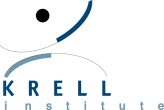Lawrence Livermore Computational Scientist is 2021 Corones Award Honoree

Jeffrey A.F. Hittinger, a computational scientist at Lawrence Livermore National Laboratory (LLNL), is the 2021 recipient of the James Corones Award in Leadership, Community Building and Communication from the Krell Institute.
Hittinger, who earned his doctorate in Aerospace Engineering and Scientific Computing from the University of Michigan in 2000, is director and division leader of the lab’s Center for Applied Scientific Computing (CASC). In that post he oversees nearly 150 researchers in computational mathematics, computer science and data science.
A selection committee comprised of representatives from the national laboratories, academia and Krell praised Hittinger for “his initiatives to guide the lab’s applied mathematics and computational science research, especially helping plot the course to exascale computing for the Department of Energy (DOE) applied math program; his service enhancing and supporting the DOE Computational Science Graduate Fellowship community and mentoring young researchers; and his outreach to varied audiences, informing them about and advocating for DOE and LLNL science.”
The award honors the late founder of the Krell Institute, a nonprofit organization based in Ames, Iowa, that serves the scientific and educational communities. “We’re thrilled to honor Jeff, the first recipient who knew and worked with Jim Corones,” Krell Institute President Shelly Olsan said. “He has an exceptional record as a scientist, as a leader in the applied mathematics and high-performance computing communities, as a mentor to and advocate for young researchers, and as an outstanding communicator. I know Jim would be pleased with this selection.”
Hittinger will formally receive the engraved award and $2,000 honorarium at a program later this year.
Hittinger’s research focuses on advanced discretization methods for partial differential equations that underlie multiphysics numerical simulations. Applications include plasma physics, fluid dynamics and radiation hydrodynamics. He has devised high-order finite-difference and finite-volume methods, parallel computing strategies and adaptive mesh refinement techniques. Hittinger also has advanced a posteriori error estimation and finite-precision floating-point representations, recently leading a Laboratory Strategic Initiative on Variable Precision Computing.
Bruce Hendrickson, LLNL associate director for computing, nominated Hittinger, citing in particular his activities with the DOE Computational Science Graduate Fellowship (DOE CSGF), support for outstanding computational science and nurturing of rising researchers. The Krell Institute manages the fellowship for DOE.
Hittinger was a DOE CSGF recipient from 1996 to 2000 and was one of two alumni to share the inaugural Frederick A. Howes Scholar in Computational Science award for recent graduates who demonstrate outstanding leadership, character and technical achievement. Hittinger has served on the fellowship’s screening, selection and steering committees and on the Howes Scholar selection committee. He has frequently advocated for the program, including serving on a subcommittee that assessed its impact and recommended expansion to the group advising DOE’s Office of Advanced Scientific Computing Research (ASCR). Hittinger was a founding member and interim president of the DOE CSGF Alumni Association and since 2019 has been a co-principal investigator for the fellowship.
Hendrickson and the selection committee praised Hittinger’s leadership in the computational science community. He manages LLNL’s portfolio of ASCR-sponsored projects and has participated in many such endeavors. Hittinger served as a co-chair of the program’s Exascale Mathematics Working Group and “was the driving force” behind its effort, Alexandra (Sandy) Landsberg, who was ASCR Applied Mathematics program manager at the time, wrote in a letter supporting his Corones Award nomination. Hittinger “saw these new exascale systems would usher in new problems and approaches, never previously conceived, and wanted the broad computational science community” to understand and prepare for them.
Landsberg wrote that after the group published its report, Hittinger “demonstrated exceptional communication skills at numerous conferences to build a community supporting these efforts.” His talks often used humor, including one titled “Why Exascale Computing Will Be Slightly Less Disruptive Than the Comet that Killed the Dinosaurs.” Hittinger is frequently invited to address diverse audiences about the importance of computational science. He’s one of a handful of LLNL Lab Ambassadors who visit University of California campuses, speaking to students about working in science to support national security.
Besides his Ph.D., Hittinger also earned an M.S. in Mathematics and an M.S.E. in Aerospace Engineering at Michigan. He earned a Bachelor of Science in Mechanical Engineering from Lehigh University in 1993. He began at LLNL as a postdoctoral researcher in 2000.
Corones, a renowned researcher and administrator, led Krell from its start in 1997 until shortly before his death in 2017, building an organization known best for the prestigious scientific workforce-training programs it manages: the CSGF, supported by the DOE Office of Science, and the DOE National Nuclear Security Administration-sponsored Stewardship Science and Laboratory Residency graduate fellowships. Before founding Krell, Corones was at the DOE’s Ames Laboratory, managed by Iowa State University, where he also was a professor. He held numerous lab posts from 1978 to 1997, including program director for applied mathematical sciences, program director for environmental technology development, deputy director and acting director.
The Krell Institute supports technology-based education and information programs with technical assistance, management expertise and communications products, and collaborates with agencies and institutions to foster the nation’s competitive advantage in science and engineering.


